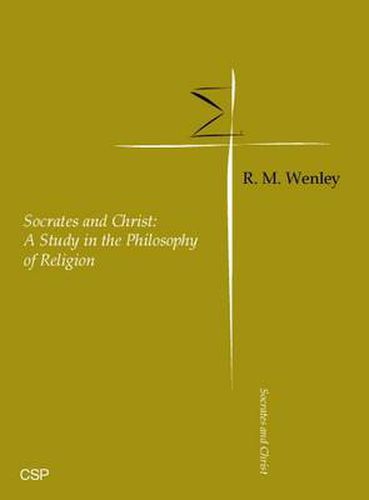Readings Newsletter
Become a Readings Member to make your shopping experience even easier.
Sign in or sign up for free!
You’re not far away from qualifying for FREE standard shipping within Australia
You’ve qualified for FREE standard shipping within Australia
The cart is loading…






Taking the Greek philosopher and Jesus Christ as a starting point, R.M. Wenley’s study in the philosophy of religion examines the reciprocal yet sometimes antagonistic relationship between philosophical and religious thought. An attempt has been made, writes the author in his preface, to show that the development of Greek thought and the peculiar character of Judaism necessarily rendered Christ’s work different from that of Socrates. While dogmatic theology undoubtedly contains very many elements derived from Greek philosophy, Christianity at its source is in no wise Greek. Philosophy partly prepared the way for it, and originated not a few doctrines which afterwards became incorporated in Christian dogma. This, however, was only a secondary relationship. In this attempt the author focuses on the main currents of scholarship that the two poles have attracted. In Wenley’s own words, no pretence is made to trench upon disputed points of creed.
$9.00 standard shipping within Australia
FREE standard shipping within Australia for orders over $100.00
Express & International shipping calculated at checkout
Taking the Greek philosopher and Jesus Christ as a starting point, R.M. Wenley’s study in the philosophy of religion examines the reciprocal yet sometimes antagonistic relationship between philosophical and religious thought. An attempt has been made, writes the author in his preface, to show that the development of Greek thought and the peculiar character of Judaism necessarily rendered Christ’s work different from that of Socrates. While dogmatic theology undoubtedly contains very many elements derived from Greek philosophy, Christianity at its source is in no wise Greek. Philosophy partly prepared the way for it, and originated not a few doctrines which afterwards became incorporated in Christian dogma. This, however, was only a secondary relationship. In this attempt the author focuses on the main currents of scholarship that the two poles have attracted. In Wenley’s own words, no pretence is made to trench upon disputed points of creed.